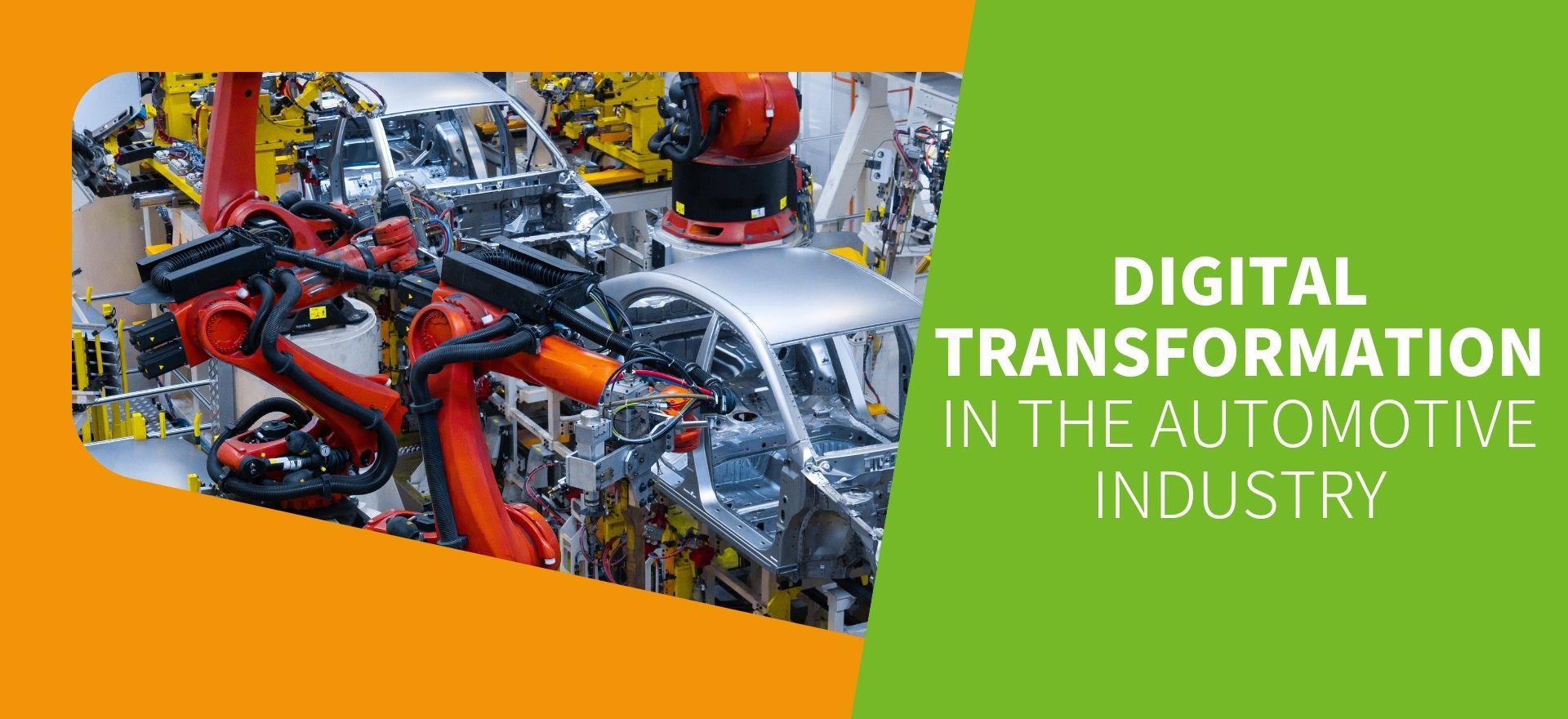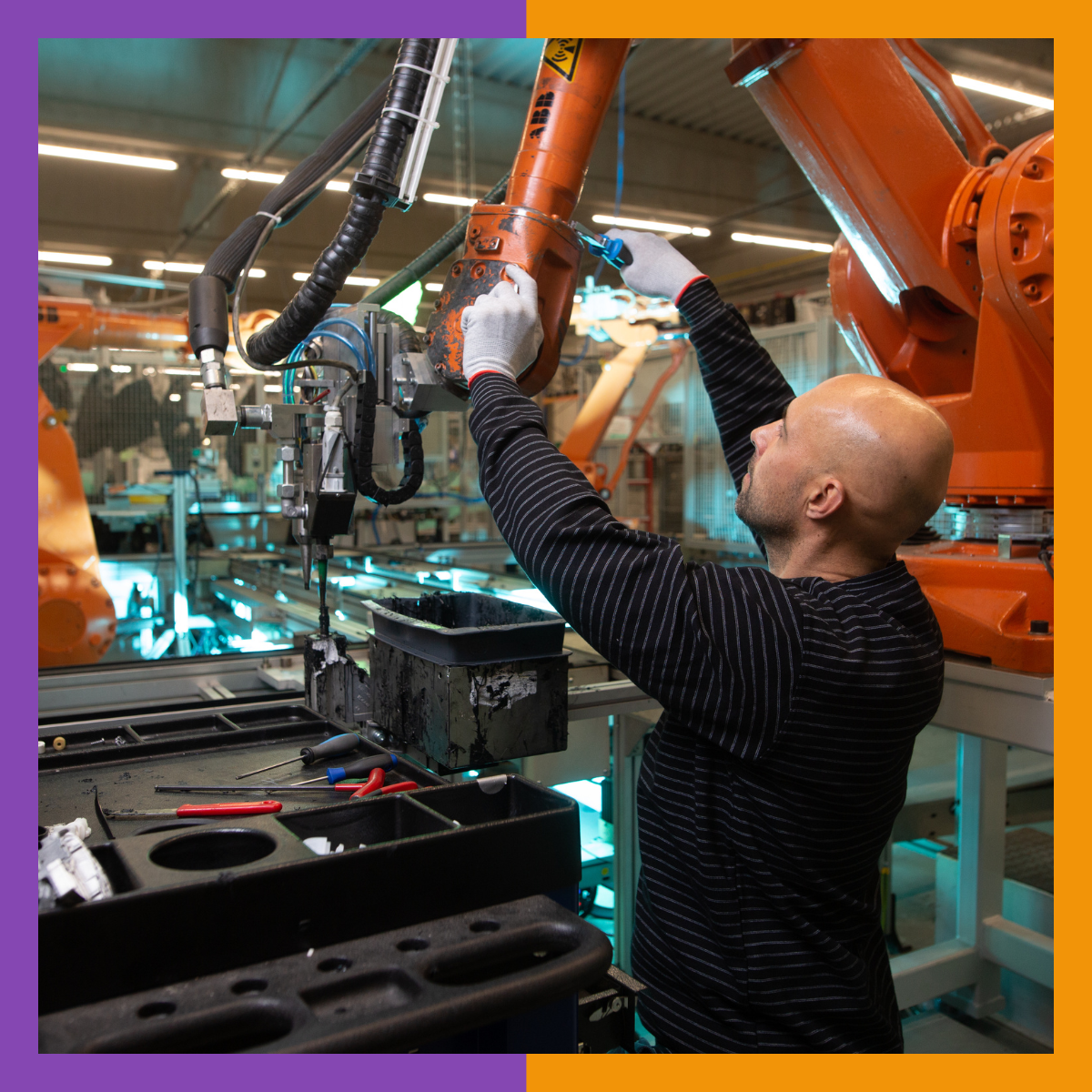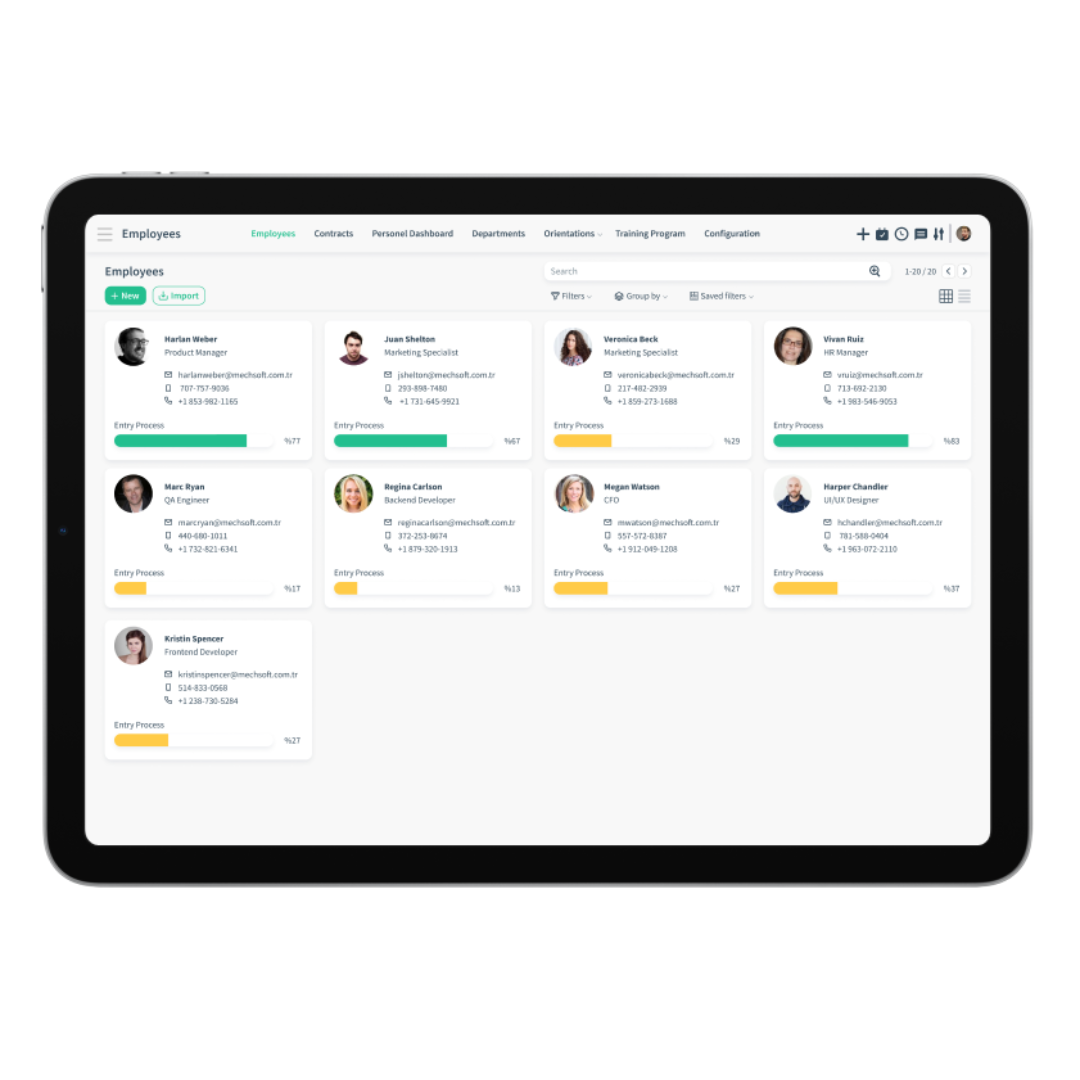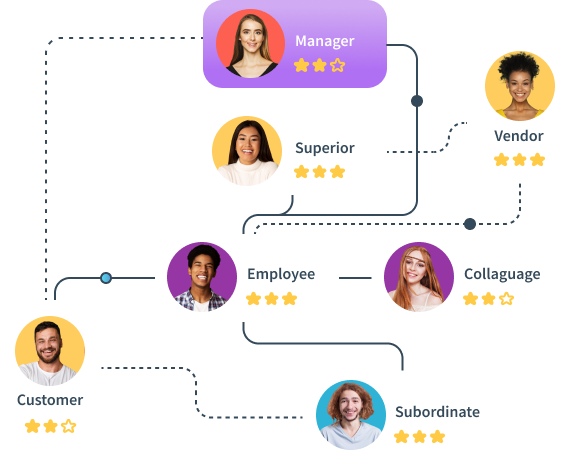Discover how the automotive industry can leverage digital transformation, integrating technological advancements to drive growth and innovation.
The automotive industry stands as a beacon of transformation, embracing new digital tools to refine and redefine every aspect of its operations. From the assembly line to the showroom, digital transformation is not just about adoption but adaptation—ensuring that every technological upgrade enhances efficiency, safety, and customer satisfaction.
Let’s delve into how digital transformation is steering the automotive industry towards a future marked by smart digitalization.

The Evolution of Digital Technologies in Automotive
The journey of digital technologies in the automotive sector is a story of relentless innovation.
Initially, the focus was on automation and improving mechanical functions.
Today, the scope has expanded exponentially with the integration of AI, IoT, and cloud computing, transforming vehicles into connected devices on wheels.
This shift has revolutionized the entire manufacturing process and customer engagement model.
Impact of Digital Transformation on Automotive Manufacturing

Digital transformation has revamped automotive manufacturing, making it smarter, more flexible, and more efficient. Robotics and automation have reduced human error and increased production speed. Simultaneously, digital twins—virtual replicas of physical devices—allow engineers to simulate production processes and identify potential issues before they occur, saving time and resources.
Digital Technologies Enhancing Automotive Design and Development
The design and development phases have greatly benefited from digital advancements. CAD systems, once basic, now offer sophisticated functionalities like simulation and 3D modeling, allowing for more precise and creative outputs. These tools not only speed up the design process but also enhance the functionality and aesthetics of the vehicles.
Role of Data Analytics in Revolutionizing Automotive Operations: Data analytics transforms vast amounts of data generated by automotive systems into actionable insights. This capability enables predictive maintenance, enhances manufacturing operations, and improves vehicle design by offering insights directly from the user’s driving patterns.
Material Requirements Planning (MRP) in the Automotive Industry: MRP systems are crucial in the automotive industry for managing the complex and extensive inventory required for vehicle production. These systems ensure optimal stock levels, timely procurement of materials, and efficient scheduling of production activities, which are essential for maintaining the rhythm of production lines and minimizing downtimes.
Transformation through Enterprise Resource Planning (ERP): ERP systems integrate various business processes, from procurement and supply chain management to sales and customer relations, into a single, unified system. In the digital age, ERP systems in the automotive industry are increasingly cloud-based, offering real-time data that enhances decision-making and responsiveness to market changes.
How are front office processes affected in the automotive industry, and what are the challenges and solutions associated with digitalizing these areas?
Digital transformation of front office processes aims to enhance efficiency and improve both customer and employee experiences. Addressing the challenges of scattered data and the need for a truly omnichannel strategy requires a comprehensive approach to digital integration.
How can automotive companies digitalize their front office processes?
One of the primary steps in digitalizing front office processes in the automotive industry is integrating Customer Relationship Management (CRM) and Enterprise Resource Planning (ERP) systems. This integration allows for a seamless flow of information across all customer touchpoints, ensuring a consistent and personalized customer experience (CX). With a unified system, data from sales, customer service, and marketing is centralized, reducing data silos and enabling a true omnichannel strategy that enhances customer engagement and satisfaction.
In the automotive industry, where customer engagement is paramount, leveraging advanced analytics tools to analyze customer data and market trends is essential for effective communication and tailored marketing strategies. However, the focus shouldn't be solely on customers; it's equally crucial to address employee needs and processes.
Digital Tools for Enhanced HR Services
Digital transformation in HR involves the adoption of Human Resource Information Systems (HRIS) that automate and streamline HR tasks such as recruitment, onboarding, payroll, and performance management. These systems provide employees with self-service portals where they can manage their personal information, benefits, and training programs.
Recognizing that not all employees in the automotive industry have constant access to computers, especially those on the production floor or in field services, it’s important to adopt mobile technology. Providing user-friendly mobile applications that can be accessed from smartphones or tablets can ensure that all employees stay connected and informed. These applications are designed to provide critical functionalities, such as time tracking, access to HR services, communication tools, and operational metrics.
Digital platforms can also be used to enhance employee engagement by offering training and development programs that are accessible online. These platforms can host a variety of learning materials in different formats (videos, articles, and interactive simulations) to suit different learning preferences and schedules. This helps in upskilling employees and also fosters a culture of continuous improvement and innovation.
CloudOffix as a Catalyst for Digital Transformation in Automotive Industry
CloudOffix is a cloud-based platform that offers integrated business solutions, making it useful for automotive companies looking to digitalize their front office processes efficiently.
Here’s how CloudOffix can specifically benefit the automotive industry:
Unified Platform for Customer Relationship Management (CRM): CloudOffix provides a comprehensive suite for CRM functionalities. This is crucial for automotive companies as it ensures that all customer interactions and operational data are stored in a unified system. This centralization eliminates data silos and provides a 360-degree view of the customer, which is essential for delivering personalized customer experiences and streamlining internal processes.

Enhanced Sales and Marketing Automation: CloudOffix enables automotive companies to automate various sales and marketing tasks. The platform's CRM capabilities allow for effective lead management, from capturing leads through various channels to nurturing them with targeted marketing campaigns. The automation of these processes ensures that no lead is lost and that potential customers receive timely and relevant communications, increasing the likelihood of conversions.
Efficient Project Management: The platform also includes robust project management tools that are ideal for managing the complex projects typically seen in the automotive industry. These tools help in planning, executing, and monitoring project progress, ensuring that all team members have real-time access to project updates and deadlines. This facilitates better coordination and collaboration, leading to more efficient project completion.

Mobile Accessibility for On-the-Go Management: Understanding the dynamic nature of the automotive industry, CloudOffix offers mobile solutions that allow employees to access the system from anywhere, anytime. This feature is particularly beneficial for employees who are on the production floor or in the field and do not have constant access to a desktop. With mobile access, they can stay informed about their tasks, schedules, and any updates relevant to their roles.
Customizable and Scalable Solutions: CloudOffix provides customizable solutions that can be tailored to meet the specific needs of an automotive company. Whether it's scaling up the operations, adding new functionalities, or integrating with other tools, CloudOffix’s flexible architecture allows for adjustments and enhancements as the business grows and evolves.
Real-Time Data and Analytics: The platform offers real-time data and analytics capabilities, which are essential for making informed decisions quickly. Automotive companies can leverage these insights to understand market trends, customer behavior, and operational performance. This real-time information enables executives to make strategic decisions that can significantly impact the company's growth and efficiency
Improving Employee Engagement and Experience:
CloudOffix provides tools that foster better communication, collaboration, and self-management. Employees have access to all the resources they need, including HR tools, communication platforms, and personal performance metrics, all within the same system. We create a more engaged and motivated workforce.
In the automotive industry, where efficiency, innovation, and customer and employee satisfaction are paramount, CloudOffix serves as a powerful tool for digital transformation.
By providing an integrated, customizable, and easy-to-use platform, CloudOffix helps automotive companies manage their operations more efficiently and gears them up for future growth and challenges.
As companies continue to navigate the complexities of the digital age, CloudOffix stands out as a valuable partner in their journey towards a more integrated, agile, and customer/employee-focused business model.
